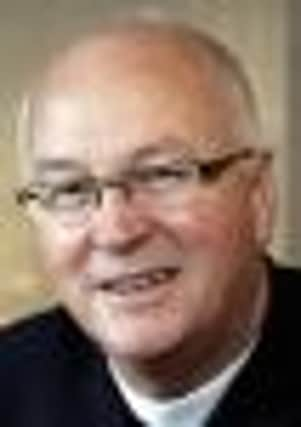The nurse and the singer


She was born in December 1865, in the village of Swardeston in rural Norfolk, where he father was the local curate.
She decided to follow a career in nursing, a profession whose status had been elevated in the public esteem through the conduct of ‘The lady with the Lamp’ in the recently-terminated Crimean War.
Advertisement
Hide AdAdvertisement
Hide AdIt was a signal blessing that during her training Edith came under the influence of Eva Luckes, matron of the London Hospital for almost forty years. Luckes had imbibed the philosophy of Florence Nightingale, and her approach embodied the firm Christian principles which mattered so much to Edith Cavell.
Hints of New Testament teaching run through the advice Luckes set down for trainee nurses: “You have chosen a profession in which there is simply no limit to the good you can do...You must walk worthy of the vocation wherein you are called...Selfishness is pre-eminently a defect which disqualifies a woman from the nursing profession. You must strenuously cultivate a self-controlled manner.”
Those principles shaped Edith Cavell’s short career, and guided her when called to head up a training school for nurses in Brussels in 1907.
All was progressing smoothly, until Europe’s headlong rush to war in 1914. Soon German troops were marching through Brussels, and Edith Cavell found herself treating injured Allied arriving from the carnage of Mons.
Advertisement
Hide AdAdvertisement
Hide AdEvents moved quickly, and with Belgian patriots, her hospital became one link in a chain whereby Allied soldiers were treated and assisted on their way for freedom. Spies abounded, and Edith Cavell was betrayed.
The sole Briton among the group of conspirators, she alone was condemned to death. On the morning of 12th October, 1915, refusing to wear a blindfold, she faced a German firing squad.
Her favourite book had been ‘The Imitation of Christ’ by Thomas a Kempis and her demeanour reflected its teaching.
Days before her execution, she examined her own motives, and was able to say that her conduct was motivated by no narrow national interest. “Patriotism is not enough”, she concluded, “I must have no hatred or bitterness to anyone.”
Advertisement
Hide AdAdvertisement
Hide AdNews of her execution shocked the world, and stiffened resistance to a German regime which could stoop so low as to execute a nurse and a woman.
Her remains were interred in the grounds of Norwich Cathedral, and her statue stands outside the National Portrait Gallery, close to London’s Trafalgar Square. Streets, hospitals and schools were named after her, in places as far apart as London, Toronto and Auckland. And on far away Venus a feature was named the Cavell Corona.
Edith Cavell is the nurse of my title, but who, you might ask, is the singer?
Two months after Nurse Cavell’s execution, a girl was born into the Gassion family in Belleville, Paris. Her parents gave her the Christian name Edith, in honour of the executed British nurse who had assisted many French patriots. That girl was later to take the stage name of Piaf, by which she is known to all the world
So this Remembrance Day, as we recall fallen heroes, let’s also remember Edith Cavell, a lady who could truly say, ‘Je ne regrette rien’.